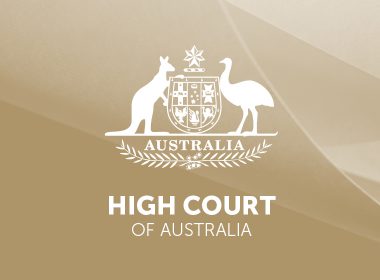Key decisions
- Gerner & Anor v State of Victoria [2020] HCA 48
- Peniamina v R [2020] HCA 47
Constitutional law
Implied freedom of movement
In Gerner & Anor v State of Victoria [2020] HCA 48 (6 November 2020) the High Court was asked by the parties to rule on the question of whether the Constitution provides for an implied freedom allowing people in Australia to move within the state where they reside without arbitrary restriction of movement.
On 16 March 2020, the Minister for Health declared a state of emergency for the whole of Victoria by reason of the risk posed by COVID-19 to public health. On the declaration of a state of emergency, the Chief Health Officer (‘CHO’) is empowered, by ss 200(1)(b) and (d) of the Public Health and Wellbeing Act 2008 (Vic) (‘Health Act’), to ‘restrict the movement of any person or group of persons within the emergency area’ and to ‘give any other direction’ that he ‘considers is reasonably necessary to protect public health’. Since the declaration, the CHO has issued directions restricting the movement of people within Victoria. The directions were in force at the time the matter came before the High Court (‘Lockdown Directions’).
The first plaintiff resided in Melbourne and was the owner of the second defendant, a restaurant business in Melbourne. The Lockdown Directions had a devastating impact on the plaintiffs’ restaurant business. The plaintiffs commenced proceedings in the original jurisdiction of the High Court seeking declarations that ss 200(1)(b) and (d) of the Health Act and the Lockdown Directions are invalid as an infringement of an implied right to freedom of movement in the Constitution.
The plaintiffs argued that the freedom could be implied in three alternative ways. First, the plaintiffs argued that the freedom could be ‘implied from the text and structure of the Constitution and is logically and practically necessary for the preservation of the constitutional structure’ (‘Preservation Argument’). Second, the plaintiffs argued that the freedom could be ‘implied from the system of representative and responsible government enshrined in the Constitution and as part of the implied freedom of political communication’ (‘Political Communication Argument’). Third, the plaintiffs argued that the freedom could be ‘implied as an aspect of s 92 of the Constitution’ (which provides for free trade between Australian states) (‘Free Trade Argument’).


